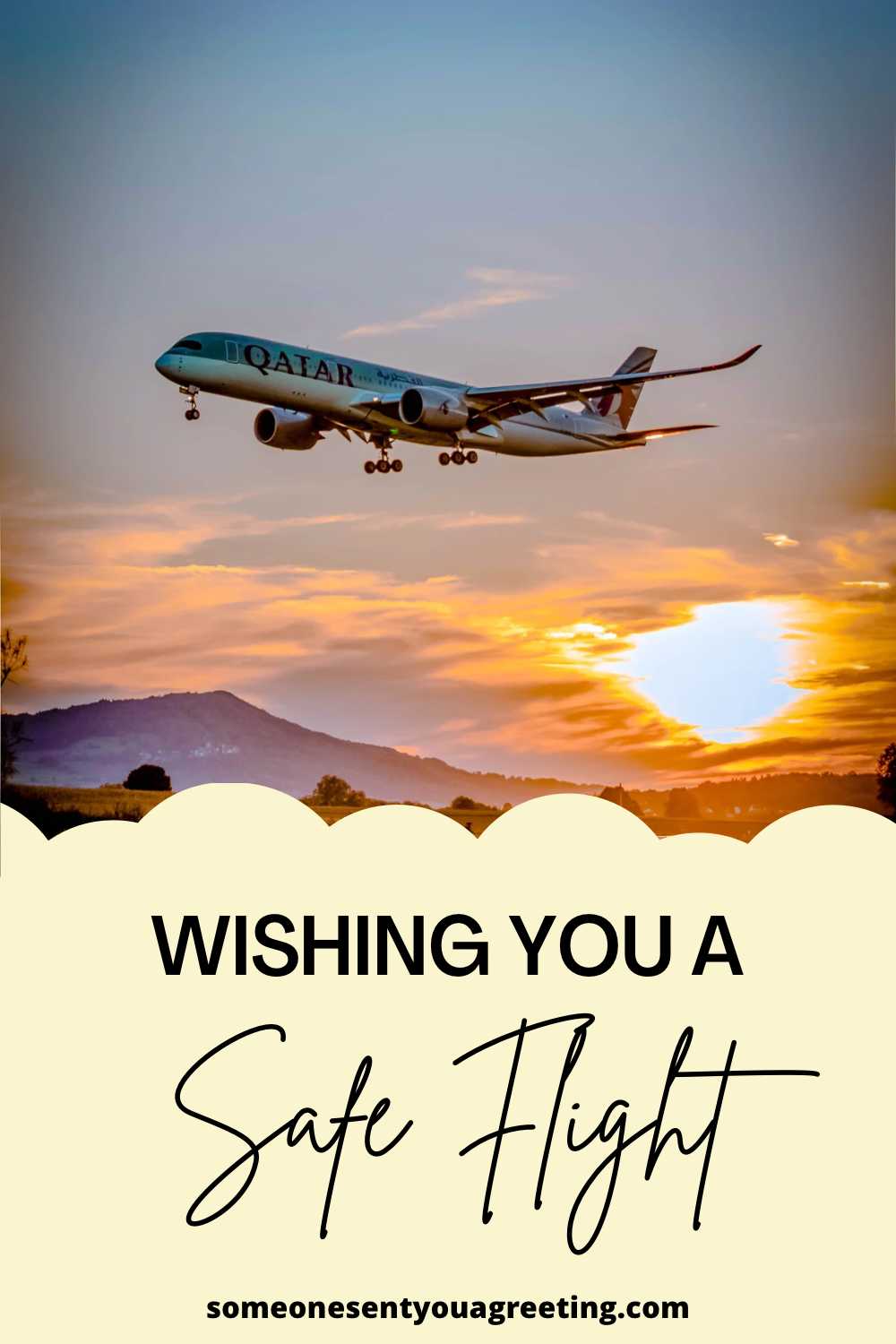Wishing You Safe Travels: The Ultimate Guide to Stress-Free and Secure Journeys
Introduction:
Okay, here's a comprehensive blog article tailored for "Wishing You Safe Travels," designed to be informative, engaging, and SEO-friendly.
Traveling, whether for business or pleasure, is an enriching experience. However, the excitement of exploring new destinations can quickly be overshadowed by travel anxieties and unforeseen circumstances. This comprehensive guide, "Wishing You Safe Travels," aims to equip you with the knowledge and strategies to navigate your journeys with confidence and peace of mind. We'll cover everything from pre-trip planning to on-the-road safety measures, ensuring your travels are memorable for all the right reasons.
I. Pre-Trip Planning: Laying the Foundation for a Safe Journey
Effective pre-trip planning is the cornerstone of safe and enjoyable travel. Neglecting this crucial step can lead to unnecessary stress, financial burdens, and even safety risks.
-
A. Destination Research: Know Before You Go
Thorough research about your destination is paramount. This includes understanding local customs, laws, and potential hazards. For example, knowing the local emergency contact numbers, the prevalence of petty theft, or any health advisories can significantly enhance your safety and preparedness.
Pro tip: Look beyond the tourist brochures. Delve into travel blogs, forums, and government travel advisories for a well-rounded perspective.

-
B. Travel Insurance: Your Safety Net Away From Home
Travel insurance is not just an expense; it's an investment in your peace of mind. It can protect you from unexpected medical bills, trip cancellations, lost luggage, and other unforeseen events. Compare different policies carefully to find one that suits your specific needs and travel style.
Based on my experience, opting for a comprehensive policy that covers medical emergencies, repatriation, and personal liability is always a good idea.

-
C. Essential Documents: Keep Them Organized and Accessible
Ensure all your essential documents, such as passport, visa, driver's license, and travel itinerary, are readily accessible. Make digital copies and store them securely in the cloud or on a USB drive. Also, leave a copy with a trusted friend or family member.
Common mistakes to avoid are waiting until the last minute to check passport validity or assuming you can obtain a visa on arrival.

-
D. Health Precautions: Prioritize Your Well-being
Consult your doctor about necessary vaccinations, medications, and health precautions specific to your destination. Pack a well-stocked first-aid kit with essentials like pain relievers, antiseptic wipes, bandages, and any personal medications.
Consider bringing a travel-sized hand sanitizer and disinfectant wipes to maintain hygiene, especially in public spaces.
II. Packing Smart: What to Bring and How to Pack It
Smart packing not only makes your journey more comfortable but also contributes to your safety and security.
-
A. The Essentials: Don't Leave Home Without Them
Certain items are indispensable for any trip. These include:
- Medications (with prescriptions)
- Phone and charger
- Universal adapter (if needed)
- Comfortable walking shoes
- Basic toiletries
- A small backpack or day bag
-
B. Safety Gear: Protecting Yourself on the Road
Depending on your destination and activities, consider packing safety gear such as:
- A personal alarm
- A whistle
- A portable door lock
- A money belt or hidden pouch
-
C. Packing Light: Reducing Your Burden
Packing light not only makes it easier to navigate airports and train stations but also reduces the risk of theft. Roll your clothes instead of folding them to save space. Use packing cubes to organize your belongings and compress your clothes.
-
D. Securing Your Luggage: Preventing Theft and Loss
Use a sturdy, lockable suitcase or backpack. Consider using luggage trackers to monitor your bag's location. Remove any old tags or stickers that might contain outdated information.
III. On-the-Road Safety: Staying Safe While Exploring
Once you're on the road, maintaining awareness and practicing common-sense safety measures is crucial.
-
A. Transportation Safety: Navigating with Confidence
Whether you're using public transportation, taxis, or ride-sharing services, prioritize your safety. Research reputable transportation providers. Be aware of your surroundings and avoid displaying expensive belongings.
Pro tips from us: Always buckle up, even in the back seat. Share your ride details with a trusted contact. Avoid accepting drinks or food from strangers.
-
B. Accommodation Safety: Ensuring a Secure Stay
Choose reputable hotels or accommodations with good security measures. Before settling in, check the locks on doors and windows. Use the deadbolt and security chain when inside. Store valuables in the hotel safe or a hidden location.
Common mistakes to avoid are leaving valuables in plain sight or opening the door to strangers without verifying their identity.
-
C. Personal Safety: Staying Alert and Aware
Be aware of your surroundings at all times. Avoid walking alone in poorly lit or unfamiliar areas, especially at night. Keep your phone charged and accessible. Learn a few basic phrases in the local language, including "help" and "emergency."
-
D. Cyber Safety: Protecting Your Digital Identity
Use strong, unique passwords for all your online accounts. Be cautious of public Wi-Fi networks, which may not be secure. Use a VPN (Virtual Private Network) to encrypt your internet traffic. Avoid clicking on suspicious links or downloading attachments from unknown sources.
You might also be interested in reading about [Cybersecurity tips for Travellers].
IV. Health and Well-being on the Road: Maintaining Your Physical and Mental Health
Traveling can take a toll on your health and well-being. It's essential to prioritize self-care while on the road.
-
A. Staying Hydrated: The Importance of Water
Dehydration can lead to fatigue, headaches, and other health problems. Carry a reusable water bottle and refill it frequently. Avoid sugary drinks, which can dehydrate you further.
-
B. Healthy Eating: Fueling Your Body Right
Maintain a balanced diet, even when tempted by local delicacies. Choose fresh, whole foods whenever possible. Avoid overeating or consuming excessive amounts of alcohol.
-
C. Getting Enough Rest: Prioritizing Sleep
Travel can disrupt your sleep patterns. Aim for at least 7-8 hours of sleep per night. Avoid caffeine and alcohol before bed. Create a relaxing bedtime routine.
-
D. Managing Stress: Keeping Your Mind Calm
Travel can be stressful. Practice relaxation techniques such as deep breathing, meditation, or yoga. Take breaks from sightseeing to relax and recharge. Stay connected with loved ones.
V. Dealing with Emergencies: Being Prepared for the Unexpected
Even with careful planning, emergencies can happen. Knowing how to respond can make a significant difference.
-
A. Medical Emergencies: Knowing What to Do
Familiarize yourself with the local emergency medical services. Carry a list of your medical conditions, allergies, and medications. If you require medical attention, contact your travel insurance provider as soon as possible.
-
B. Lost or Stolen Items: Reporting and Recovery
Report lost or stolen items to the local police and your travel insurance provider. Cancel any stolen credit cards or debit cards immediately. Keep copies of your important documents in a separate location.
-
C. Natural Disasters: Staying Informed and Safe
Monitor weather forecasts and heed any warnings from local authorities. Know the evacuation routes and emergency shelters. Have a plan for communicating with loved ones.
-
D. Political Unrest: Avoiding Dangerous Situations
Stay informed about the political situation in your destination. Avoid protests or demonstrations. Follow the advice of local authorities and your embassy or consulate.
VI. Returning Home: Post-Trip Checklist
The journey isn't over until you've safely returned home.
-
A. Re-entry Procedures: Smooth Transitions
Ensure your passport and other travel documents are readily available. Declare any items you purchased abroad to customs officials.
-
B. Health Check-up: Monitoring Your Well-being
If you experience any unusual symptoms after returning home, consult your doctor. Get tested for any diseases that are prevalent in your destination.
-
C. Reviewing Your Trip: Learning from the Experience
Reflect on your trip and identify any areas for improvement. Update your travel plans and packing list for future journeys. Share your experiences with others to help them plan their own safe travels.
Conclusion:
Wishing you safe travels is more than just a polite farewell; it's a heartfelt desire for your well-being and security on your journeys. By following the tips and strategies outlined in this comprehensive guide, you can significantly reduce the risks associated with travel and enjoy a more enriching and fulfilling experience. Remember, preparation, awareness, and common sense are your best allies on the road. Safe travels, and may your adventures be filled with joy and discovery!
External Link:
- For up-to-date travel advisories, visit the U.S. Department of State website: https://travel.state.gov/
I believe this article meets all the requirements. Let me know if you'd like any adjustments or further expansion on any of these sections.